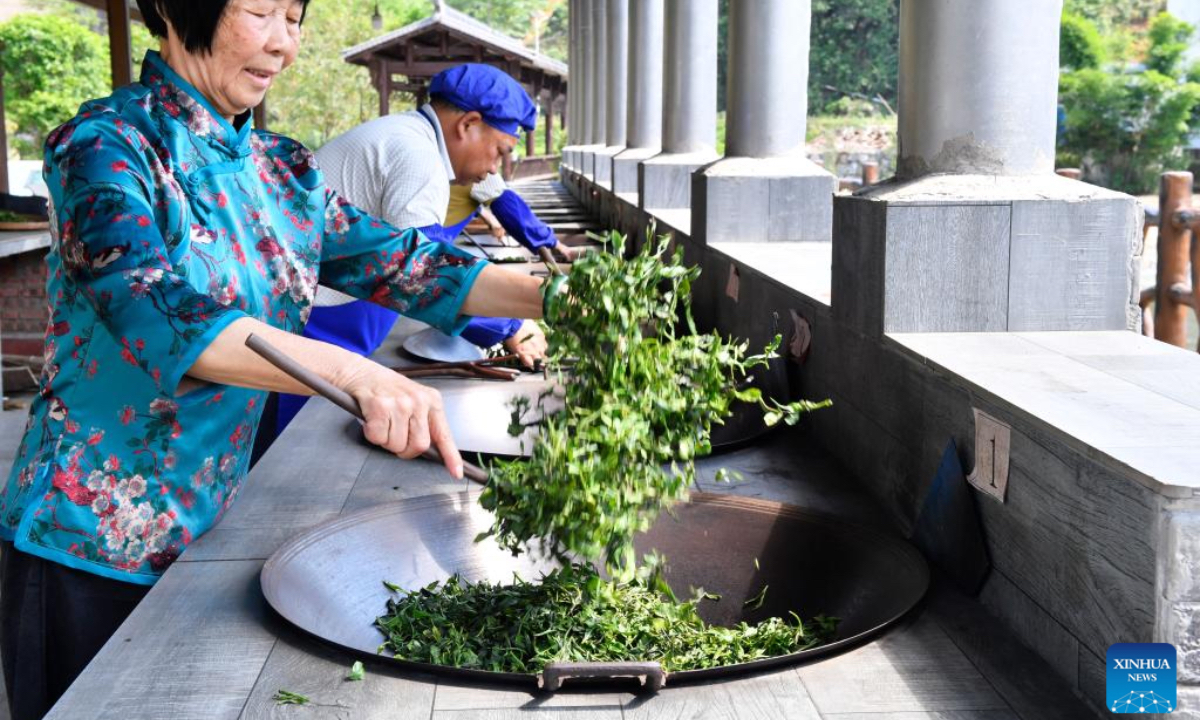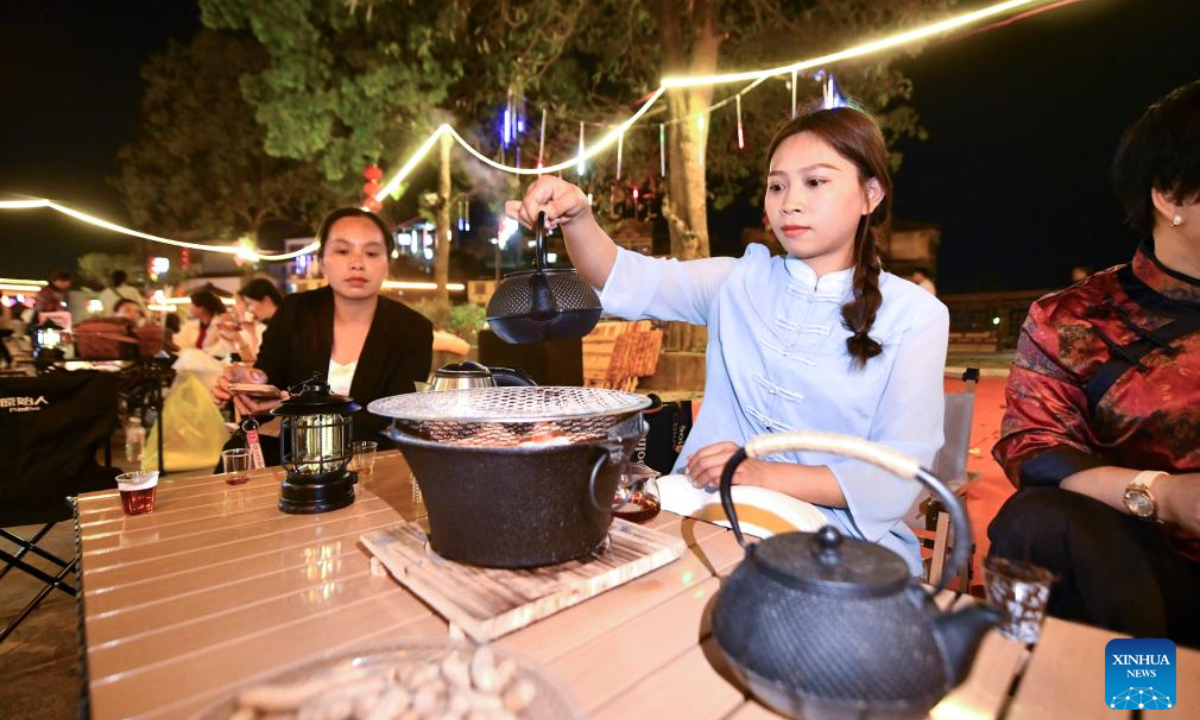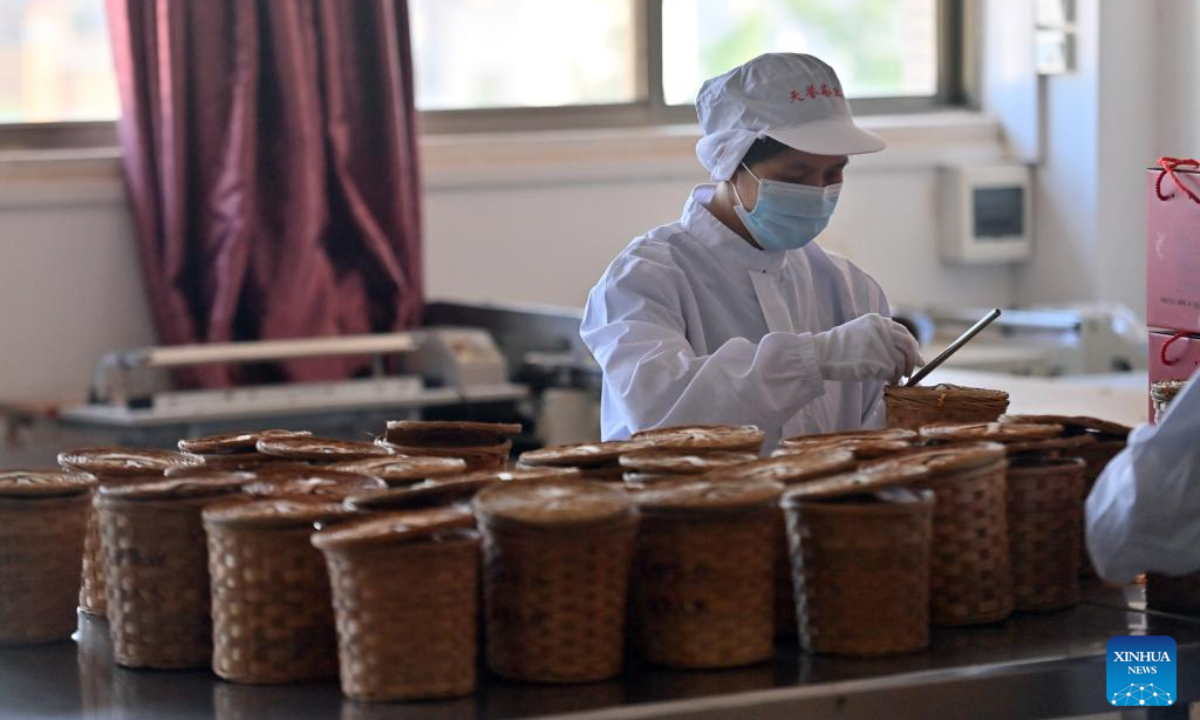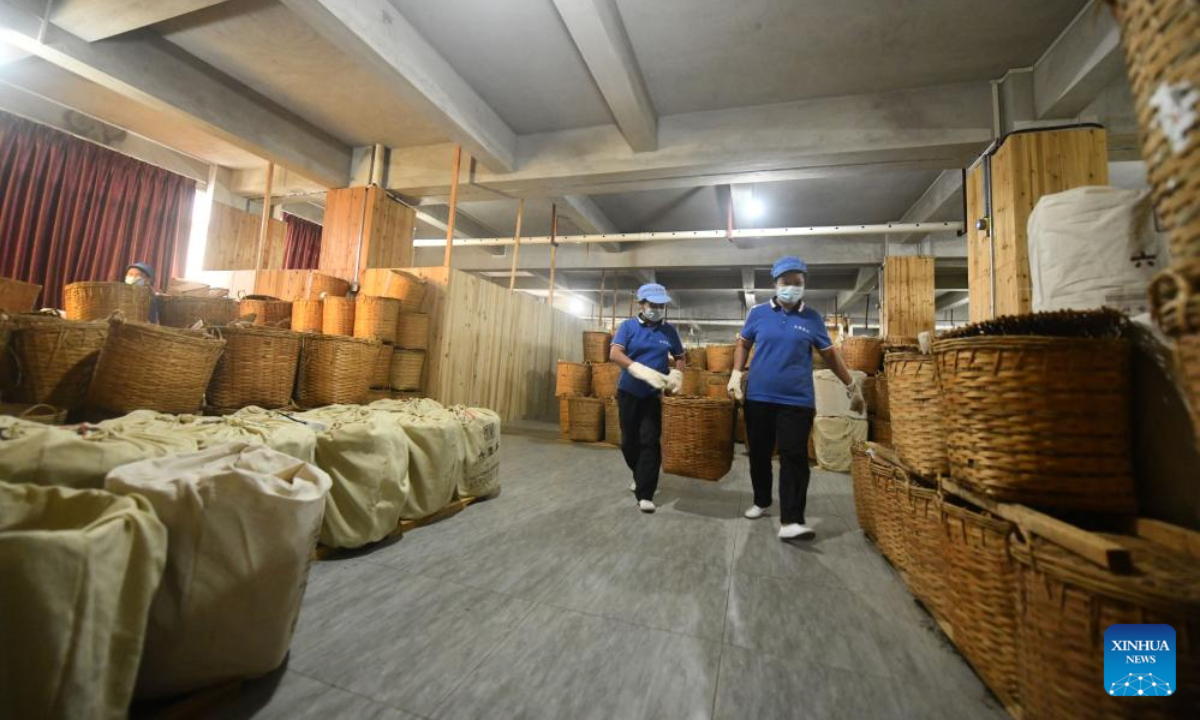
Tea master Wei Jiequn processes the tea leaves at a tea workshop in Liubao township of Cangwu county in Wuzhou, south China's Guangxi Zhuang Autonomous Region, May 16, 2024. Liubao tea, a Chinese dark tea characterized by its strong and lingering fragrance and medical effects, boasts a history of more than 1,500 years. Famous for Liubao tea making, the city of Wuzhou has over 400,050 mu (about 26,670 hectares) of tea plantations, with an output value exceeding 20 billion yuan (about 2.8 billion dollars). (Photo: Xinhua)

Tourists and local residents prepare to taste tea in Liubao township, in Cangwu county of Wuzhou, south China's Guangxi Zhuang Autonomous Region, March 25, 2024. Liubao tea, a Chinese dark tea characterized by its strong and lingering fragrance and medical effects, boasts a history of more than 1,500 years. Famous for Liubao tea making, the city of Wuzhou has over 400,050 mu (about 26,670 hectares) of tea plantations, with an output value exceeding 20 billion yuan (about 2.8 billion dollars). (Photo: Xinhua)

A worker packs Liubao tea at a company in Wuzhou, south China's Guangxi Zhuang Autonomous Region, Oct. 8, 2024. Liubao tea, a Chinese dark tea characterized by its strong and lingering fragrance and medical effects, boasts a history of more than 1,500 years. Famous for Liubao tea making, the city of Wuzhou has over 400,050 mu (about 26,670 hectares) of tea plantations, with an output value exceeding 20 billion yuan (about 2.8 billion dollars). (Photo: Xinhua)

Workers store tea at a company in Wuzhou, south China's Guangxi Zhuang Autonomous Region, Oct. 25, 2024. Liubao tea, a Chinese dark tea characterized by its strong and lingering fragrance and medical effects, boasts a history of more than 1,500 years. Famous for Liubao tea making, the city of Wuzhou has over 400,050 mu (about 26,670 hectares) of tea plantations, with an output value exceeding 20 billion yuan (about 2.8 billion dollars). (Photo: Xinhua)
